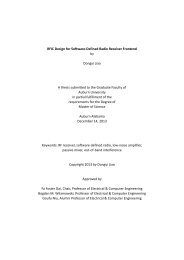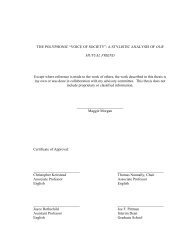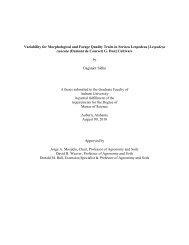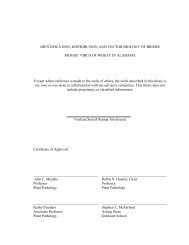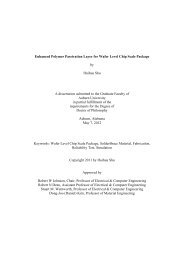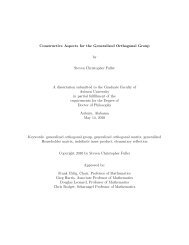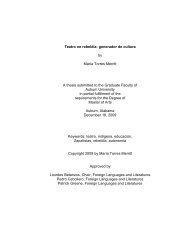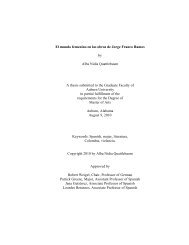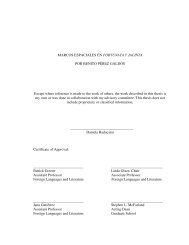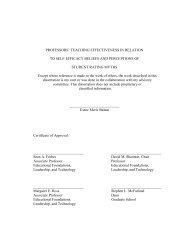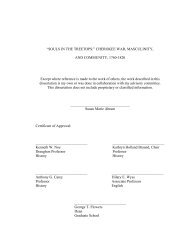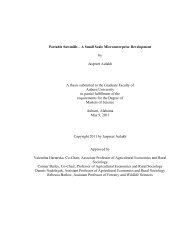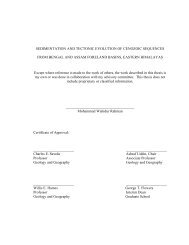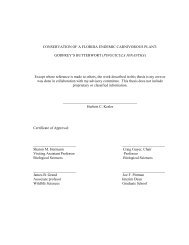the trouble with gender in othello - Auburn University Electronic ...
the trouble with gender in othello - Auburn University Electronic ...
the trouble with gender in othello - Auburn University Electronic ...
You also want an ePaper? Increase the reach of your titles
YUMPU automatically turns print PDFs into web optimized ePapers that Google loves.
and Juliet show what happens after <strong>the</strong> comedy ends: “Plays that cont<strong>in</strong>ue<br />
beyond <strong>the</strong> po<strong>in</strong>t where comedy ends, <strong>with</strong> <strong>the</strong> old fogies defeated and a happy<br />
marriage successfully concluded, depict <strong>the</strong> condition as utterly disastrous”<br />
(Orgel 674). It should also be borne <strong>in</strong> m<strong>in</strong>d that while <strong>the</strong> <strong>the</strong>me of children<br />
subvert<strong>in</strong>g <strong>the</strong>ir parents is a <strong>the</strong>atrical convention that dates back to <strong>the</strong> Greek<br />
and Roman <strong>the</strong>ater:<br />
The degree to which this dramatized generation gap reflected<br />
actual social conditions rema<strong>in</strong>s highly problematic, but,<br />
presumably patriarchs <strong>in</strong> <strong>the</strong> audience participated <strong>in</strong> <strong>the</strong> laughter<br />
at <strong>the</strong> obtuse sennex (sic) foiled by his canny children even as <strong>the</strong>y<br />
returned to <strong>the</strong>ir homes to exert <strong>the</strong>ir patriarchal, and often<br />
tyrannical, power over <strong>the</strong>ir own offspr<strong>in</strong>g. (Lenker 22)<br />
It is a safe assumption, accord<strong>in</strong>g to historians deal<strong>in</strong>g <strong>with</strong> <strong>the</strong> time period, that<br />
no matter what happened on <strong>the</strong> stage of a comedy, <strong>the</strong> patriarchy was alive and<br />
well <strong>in</strong> Shakespeare’s England (Lenker 17-19). 1 Lawrence Stone hypo<strong>the</strong>sizes<br />
that <strong>the</strong>re was an <strong>in</strong>creased enforcement of patriarchy dur<strong>in</strong>g <strong>the</strong> early modern<br />
period:<br />
The growth of patriarchy was deliberately encouraged by <strong>the</strong> new<br />
Renaissance state on <strong>the</strong> traditional grounds that <strong>the</strong> subord<strong>in</strong>ation<br />
of <strong>the</strong> family to its head is analogous to, and also a direct<br />
contributory cause of, subord<strong>in</strong>ation of subjects to <strong>the</strong> sovereign.<br />
6



